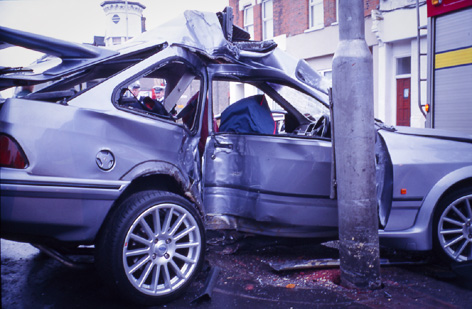Paramedic CPD
Paramedic CPD
Following the introduction of paramedic registration and the mandatory continuing professional development (CPD) requirement to complete at least 30 hours of CPD each year, Edoceo Group will be introducing a programme designed to assist paramedics meet their CPD obligations.
This programme will combine face-to-face workshops and courses with a suite of online modules developed specifically for the modern paramedic, with the aim of providing interactive learning experiences on a range of subjects, including clinical decision making; patient assessment; pain management; mental health, end of life care and clinical leadership. At the completion of each session a CPD certificate will be awarded that identifies completion of 2 hours of CPD – each session will include an overview, case studies, assessment and a summary.
Continuing professional development is the means by which members of the profession maintain, improve and broaden their knowledge, expertise and competence, and develop the personal and professional qualities required throughout their professional lives. Our interactive workshops and courses will also be able to be selected, for example 12-lead ECG interpretation; trauma management; paramedic skills workshop; advanced airway management; pre-hospital newborn delivery; or the internationally recognised Pediatric Education for Pre-hospital Professionals (PEPP) and Advanced Cardiac Life Support (ACLS) courses to be included as part of the programme.
Participants will be able to choose how they complete the programme and this will depend on their preferred method of learning. Those comfortable with online learning may opt for the minimum of 8 face-to-face contact hours, for example, participating in an one day workshop and completion of 11 online modules, while those who favour a more traditional learning approach may choose two or three face-to-face learning activities with minimal online modules.
In the meantime the following section links to Edoceo Group’s online lessons and exams along with free third-party online CPD opportunities relevant to Australian paramedics (we take no responsible for the third-party resources). Further learning opportunities will continue to be added in the future.

Continuing Professional Development Guidelines
To meet the CPD standard, you must:
Complete at least 30 hours of CPD each year that:
- seeks to improve patient outcomes and experiences;
- draws on the best available evidence, including well-established and accepted knowledge that is supported by research where possible, to inform good practice and decision-making;
- contributes directly to improving your competence (performance and behaviour) and keeping you up to date in your chosen scope and setting of practice;
- builds on your existing knowledge; and
- includes a minimum of eight hours CPD in an interactive setting with other practitioners.
Maintain a portfolio that documents your learning goals, records all your planned CPD activities, your reflection on how these CPD activities have or are expected to improve your practice and evidence of having completed these activities.
All CPD which helps you maintain and enhance your competence and is relevant to your scope of practice, will meet the standard. The Board does not endorse or accredit CPD providers or activities but expects practitioners to select CPD activities that are consistent with the ethical and professional standards set out by the Board. When selecting CPD activities you should consider:
- the qualifications, credentials and experience of the provider;
- selecting a range of topics and activities over time;
- having a balance between practice-based reflective activities (for example clinical audit, peer review or performance appraisal), professional education and training activities (for example seminars) and professional experience and development activities (for example meetings/ discussions, self-study, forums etc.); and
- choosing activities that are consistent with the Board’s other standards and guidelines.
To comply with the CPD registration standard you need to:
- plan your CPD and record your learning goals and the activities that you will do to meet these goals; and
- complete the CPD activities and record a reflection on how they improved your practice.
When planning your CPD you may find it useful to:
- review best practice standards or evidence-based practice approaches to enable you to evaluate and improve your level of competency, treatment plan or service delivery;
- identify changes in the profession including standards of care;
- undertake a self-assessment to identify possible areas for improvement helping you to improve your practice to meet current standards using evidence-based practice or best practice standards • identify how you could further develop competency or strengths in areas of particular interest or aptitude; and
- identify opportunities for interactive and interprofessional CPD.
DOMAIN 1: Professional and ethical conduct
This domain covers registered paramedics’ responsibility to be professional and ethical, and to practice with professional autonomy and accountability within the current medico-legal framework. It also addresses their responsibility for ensuring that patient/ service user confidentiality and privacy is maintained at all times, while recognising the potential role as a patient/service user advocate.
Advanced health care planning for health professionals.
Government of Western Australia: Department of Health
Cultural orientation plan for health professionals working with aboriginal people.
Western Australian Centre for Rural Health
This programme for clinicians focuses on the law relating to end-of-life decision-making.
Palliative Care Education
The Mental Health Act 2014 clinician’s training package.
Government of Western Australia: Mental Health Commission
A free suite of online eLearning modules developed to increase awareness about various aspects of working within remote Indigenous communities.
Remote Area Health Corps
DOMAIN 2: Professional communication and collaboration
This domain covers registered paramedics’ responsibility to utilise appropriate, clear and effective communication. It also addresses their responsibility to ensure that they function effectively with other healthcare team members at all times.
A series of modules designed to improve health professionals’ responsiveness to health literacy.
Victorian Primary Care Partnerships
DOMAIN 3: Evidence-based practice and professional learning
This domain covers registered paramedics’ responsibility to engage in evidence-based practice and to critically monitor their actions through a range of reflective processes. It also addresses their responsibility for identifying, planning and implementing their ongoing professional learning and development needs.
This 5 hour, five module course will provide the information and skills necessary for you to confidently use e-MH resources in your clinical practice.
Black Dog Institute
The education modules are designed to assist doctors, nurses and allied health professionals working in acute hospitals in delivering end-of-life care.
End of Life Essentials
This 4.5 hour course is designed to explore the various causes of medication errors and equip you with the knowledge and skills to help prevent errors from occurring in your workplace.
NPS Medicinewise Learning
An introductory course for everyone with an interest in palliative care. The modules will help you develop your skills and confidence to provide palliative care.
PalliAGED
Information to help recognise the symptoms of concussion and understand the best process for treatment and ongoing management of concussion.
Sport Australia
DOMAIN 4: Safety, risk management and quality assurance
This domain covers registered paramedics’ responsibility to protect patients/service users and others from harm by managing and responding to the risks inherent in paramedicine practice. It also addresses their responsibility to ensure high quality professional services are provided for the benefit of patients and service users.
This webinar will focus on the phenomenon of burnout and what can be done to prevent and treat it.
Black Dog Institute
Hand hygiene is a high priority action for the prevention of healthcare-associated infection.
National Hand Hygiene Initiative
A suite of eLearning modules provides information on the principles of infection prevention and control.
Australian Commission on Safety and Quality in Healthcare
DOMAIN 5: Paramedicine practice
This domain covers profession specific knowledge, skills and capabilities required for practice as a registered paramedic.
This 20 hour course explores underlying safe, multidisciplinary airway management.
University College London
This one hour case-based webinar will cover the recognition of the signs & symptoms, and emergency management of anaphylaxis.
Medcast
This course will provide you with knowledge of safe transfusion practice and appropriate use of blood components that you can apply to your clinical setting.
BloodSafe eLearning Australia
This 30-minute online training module covers the fundamentals of infection prevention and control for COVID-19.
Australian Government: Department of Health
A 1 hour webinar which explores the effects from envenomation from selected animals and the appropriate management of these effects.
Medcast
Learn about mechanical ventilation and ventilators from Hamilton Medical College. A total of 26 modules are currently available for free to all students.
Hamilton Medical College
Pelvic trauma used to be a significant cause of death, but advances in integrated, inclusive trauma care have resulted in a significant reduction in mortality.
Responding to disclosures of sexual assault eLearning package: Provides an overview of current issues relating to sexual trauma in Australia.
Sexual Assault Resource Centre


